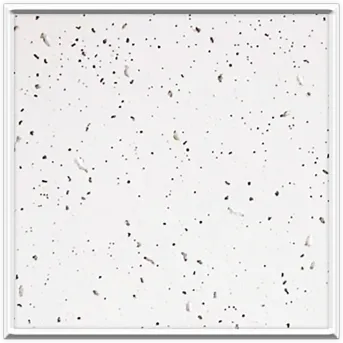- Afrikaans
- Albanian
- Amharic
- Arabic
- Armenian
- Azerbaijani
- Basque
- Belarusian
- Bengali
- Bosnian
- Bulgarian
- Catalan
- Cebuano
- Corsican
- Croatian
- Czech
- Danish
- Dutch
- English
- Esperanto
- Estonian
- French
- German
- Greek
- Hindi
- Indonesian
- irish
- Italian
- Japanese
- Korean
- Lao
- Malay
- Myanmar
- Norwegian
- Norwegian
- Polish
- Portuguese
- Romanian
- Russian
- Serbian
- Spanish
- Swedish
- Thai
- Turkish
- Ukrainian
- Uzbek
- Vietnamese
Th11 . 09, 2024 10:10 Back to list
Access Panel Solutions for Gypsum Ceilings and Walls
Access Panel Gypsum An Essential Component in Modern Construction
In the dynamic realm of modern construction, the integration of efficient materials is fundamental to successful project execution. One such material that has gained notable recognition is the access panel gypsum. Access panel gypsum systems serve as a crucial component in various building applications, offering an effective way to conceal important infrastructure while providing convenient access for maintenance and inspections.
Understanding Access Panels
Access panels are openings in walls, ceilings, or floors that allow easy access to hidden systems such as plumbing, electrical wiring, and HVAC components. They are designed to blend seamlessly with the surrounding surfaces, ensuring that both functionality and aesthetics are maintained. Gypsum access panels specifically are framed enclosures made of gypsum board, which is widely known for its fire-resistant properties, lightweight structure, and ease of installation.
Benefits of Using Gypsum Access Panels
1. Fire Resistance One of the significant advantages of gypsum is its intrinsic fire-resistant capacity. The mineral content in gypsum allows access panels to withstand high temperatures, contributing to the overall fire safety of buildings. This feature is particularly important in commercial constructions where strict building codes must be followed.
2. Aesthetic Appeal Gypsum access panels can be finished in various ways, including painting or texturing, which allows them to blend in with the surrounding surfaces. This adaptability ensures that they do not detract from the interior design, providing a clean and streamlined look that complements modern aesthetics.
3. Easy Installation The lightweight nature of gypsum makes these access panels easily manageable and simple to install. Construction teams can efficiently integrate them into a building's design without extensive labor or time requirements. This ease of installation translates to cost savings, making it a wise choice for builders and contractors.
access panel gypsum

4. Durability Gypsum boards used in access panels are designed to withstand typical wear and tear, ensuring longevity. They are less susceptible to damage compared to other materials, thus requiring fewer replacements and repairs over time. This aspect contributes to lower maintenance costs for building owners.
5. Flexibility and Versatility Gypsum access panels can be utilized in various settings, including residential, commercial, and industrial buildings. Their versatility allows architects and builders to use them in different applications, such as concealed passageways in ceilings or walls to access critical system components.
Application in Modern Construction
In the contemporary construction landscape, the use of gypsum access panels is becoming increasingly prevalent. They are often employed in office buildings, retail spaces, and hospitality venues where hidden systems need to be accessed regularly. The efficiency of these systems facilitates timely maintenance, enhancing the overall functionality of the building.
Furthermore, with the emphasis on sustainability, gypsum access panels align with eco-friendly construction practices. They can be manufactured using recycled materials, contributing to the reduction of waste in construction processes and supporting green building certifications.
Conclusion
In summary, access panel gypsum is an innovative solution that enhances infrastructure management in modern construction. Its unique combination of fire resistance, aesthetic adaptability, ease of installation, and durability makes it an invaluable asset in both commercial and residential projects. As the building industry continues to evolve, the demand for efficient and effective access solutions like gypsum access panels will undoubtedly increase, reflecting a commitment to both quality and functionality in architectural design. The integration of such systems not only addresses practical needs but also elevates the standard of modern construction practices.
-
Transform Interiors with PVC Gypsum Ceiling: A Stylish, Durable, and Moisture-Resistant SolutionNewsMay.19,2025
-
The Smart Interior Upgrade: Discover the Durability and Versatility of Gypsum Ceiling Access Panel SolutionsNewsMay.19,2025
-
The Smart Choice for Interior Design: Discover the Value of PVC Gypsum Ceiling SolutionsNewsMay.19,2025
-
Mineral Fiber Ceiling Tiles: The Smart Blend of Performance and AestheticsNewsMay.19,2025
-
Mineral Fiber Ceiling Tiles: The Superior Choice Over Gypsum for Sound and Fire SafetyNewsMay.19,2025
-
Mineral Fiber Ceiling Tiles: Eco-Friendly Strength and Style for Every CeilingNewsMay.19,2025







